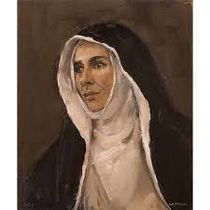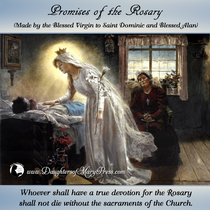The Catholic Defender: Blessed Anthony Grassi
- Donald Hartley
- a few seconds ago
- 3 min read
Deepertruth with special permission and aid with Franiciscan Media, a great team for the Lord

Anthony’s father died when his son was only 10 years old, but the young lad inherited his father’s devotion to Our Lady of Loreto.
the Virgin Mary's house in Nazareth came under threat by invading Saracen armies, it was miraculously transported in 1291 from the Holy Land to Loreto, a small town on Italy's Adriatic coast.
As a schoolboy, he frequented the local church of the Oratorian Fathers, joining the religious order when he was 17.
Already a fine student, Anthony soon gained a reputation in his religious community as a “walking dictionary,” who quickly grasped Scripture and theology. For some time he was tormented by scruples, but they reportedly left him at the very hour he celebrated his first Mass. From that day, serenity penetrated his very being.
Father Antonio’s devotion to the Blessed Mother led to a most extraordinary experience when in 1621, while praying at the shrine of the Holy House in Loreto, he was struck by lightning. While his clothes were burned and he was knocked unconscious, he was miraculously healed.

In 1621, at age 29, Anthony was struck by lightning while praying in the church of the Holy House at Loreto. He was carried paralyzed from the church, expecting to die.
When Anthony recovered in a few days he realized that he had been cured of acute indigestion.
His scorched clothes were donated to the Loreto church as an offering of thanks for his new gift of life.
More importantly, Anthony now felt that his life belonged entirely to God. Each year thereafter he made a pilgrimage to Loreto to express his thanks.
As a priest, Father Antonio was renowned as a confessor and known as the “priest of the poor” for his extraordinary charity. He was particularly adept at resolving disputes among rivals, earning the moniker “angel of peace”.
And he was especially known for his faithfulness in visiting the sick and the dying.
He also began hearing confessions, and came to be regarded as an outstanding confessor. Simple and direct, Anthony listened carefully to penitents, said a few words, and gave a penance and absolution, frequently drawing on his gift of reading consciences.
In 1635, Anthony was elected superior of the Fermo Oratory. He was so well regarded that he was reelected every three years until his death. He was a quiet person and a gentle superior who did not know how to be severe. At the same time he kept the Oratorian constitutions literally, encouraging the community to do likewise.
He refused social or civic commitments and instead would go out day or night to visit the sick or dying or anyone else needing his services. As Anthony grew older, he had a God-given awareness of the future, a gift which he frequently used to warn or to console.
But age brought its challenges as well. Anthony suffered the humility of having to give up his physical faculties one by one.
First was his preaching, necessitated after he lost his teeth. Then he could no longer hear confessions. Finally after a fall, Anthony was confined to his room.
The archbishop himself came each day to give him Holy Communion. One of his final acts was to reconcile two fiercely quarreling brothers. The liturgical feast of Blessed Anthony Grassi is celebrated on December 13.
He was beatified by Pope Leo XIII during the Holy Year of 1900, the third Oratorian to be so honored.
Words to live by Blessed Anthony Grassi:
“He who loves Our Lord Jesus Christ must desire to be with Him…the more we conform ourselves to His example the more perfect will be our lives.”

We must make humility the foundation of our lives.”
“The more humble a man is, the better he knows himself and, therefore, the better he knows God.
The more he knows God, the better he loves Him… thus by humility, he obtains more charity and by having more charity, he obtains more humility.”








